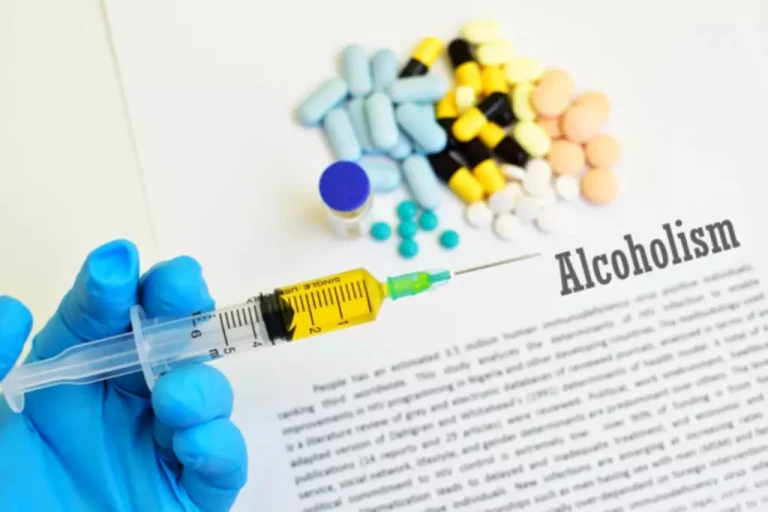PTSD and Problems with Alcohol Use PTSD: National Center for PTSD

While alcohol may temporarily improve mood and distract a person from negative thoughts and emotions, people often feel worse once the alcohol wears off. Alcohol use disorder, commonly known as alcoholism, is characterized by a strong compulsion to drink and difficulty controlling alcohol ptsd alcohol blackout consumption. People with this condition may consume large amounts of alcohol or continue to drink even when it causes negative consequences in their life. Many people experience PTSD alongside other mental health conditions like depression, anxiety, and addiction.
Treatment For PTSD and Drinking

Participants learned of this study through community newspaper advertisements and flyers and were directed to contact the research coordinator. After written informed consent and initial screening for inclusion criteria, participants completed https://ecosoberhouse.com/ an initial baseline assessment consisting of an interview and self-report measures. Participants were also instructed in procedures for telephone daily Interactive Voice Response (IVR) and the accompanying pager system.
- Alcohol is a depressant, which means it can exacerbate PTSD symptoms such as anxiety and depression.
- If you have PTSD, plus you have, or have had, a problem with alcohol, try to find a therapist who has experience treating both issues.
- The Recovery Village aims to improve the quality of life for people struggling with a substance use or mental health disorder with fact-based content about the nature of behavioral health conditions, treatment options and their related outcomes.
- If you have a drinking problem, you are more likely than others with a similar background to go through a traumatic event.
- Evidence-based PTSD interventions include prolonged exposure therapy, cognitive processing therapy, eye movement desensitization and reprocessing, psychotherapy incorporating narrative exposure, and present-centered therapy.
Health & Wellness

Drinking as a coping mechanism is a form of avoidance, and this can mean that you only prolong your symptoms. Most people with PTSD have an urge to avoid any memories or flashbacks of the trauma. Alcohol use also causes its own problem, related to both mental and physical health. These, in turn, may contribute to worsening symptoms in a counterproductive cycle.
Refilling medications
- The Simpson et al. (2017) article extends prior reviews of behavioral treatments for AUD/PTSD by considering whether comparison treatment conditions are matched to the experimental treatment condition on time and attention, and by reporting on alcohol and drug use outcomes separately when possible.
- Shelters and victim service agencies were contacted following the end of data collection, and staff indicated that the sample that participated in this research study was generally consistent in terms of income and ethnocultural diversity with the women who they serve.
- During uncontrollable trauma, an increase in endogenous opioids (endorphins) helps to numb the pain of the trauma.
- Ultimately, just know it’s ok to not drink, loads of people do for many reasons but they all boil down to the same thing, they want to live a life that makes them feel good, proud and in control.
Additionally, a one-day lag would allow for the examination of potential carry-over of one’s PTSD symptoms from one day to the next (e.g., the individual still feels so shaky and unsettled from the previous day’s PTSD exacerbation that they drink to cope). In humans, there is also a clear connection between PTSD and alcohol, according to research. For example, of a group of Vietnam war veterans with PTSD and alcoholism, more than half later developed symptoms of alcoholism (Bremner et al. 1996). Similarly, women who have been raped as children often resort to alcohol to alleviate Drug rehabilitation their PTSD symptoms (Epstein et al. 1998). In addition, investigators discovered that 40% of inpatients undergoing drug abuse care have met PTSD requirements (Dansky et al. 1997) Since the two disorders seem to be intertwined, treating PTSD and alcoholIsm patients with alcoholism necessitates treating both disorders at the same time. Patients learn to cope with past traumas and how to deal with events that can cause flashbacks in therapy.
PTSD and Alcohol Abuse
Caught off guard, Barbara freezes in terror, forgetting everything she has just learned in the class about how to protect herself; the assailant takes her pocketbook and runs off with $50 and all of Barbara’s credit cards. Although Barbara avoided physical harm, she was left with the feeling that she had no control over the outcome of the incident (i.e., she experienced uncontrollable trauma) and, as a result, experienced feelings of terror and helplessness. On her way home from the same crime prevention class, Jan encounters another man who points a gun at her head and demands her money. Jan is also afraid but manages to keep her wits, and recalling one of the strategies she just learned in the class, she throws her pocketbook past the gunman down the street. The assailant runs after the pocketbook, and Jan runs in the opposite direction.

People may develop PTSD after events such as war, natural disasters, use, and significant or sudden loss. Given the high rates of dropout reported across studies and treatment types, research is needed to enhance retention among individuals with AUD/PTSD. Relatedly, the definition of a treatment “completer” needs to be better standardized, as it is difficult to interpret and compare treatment outcomes across studies when the results are based on patients who received widely different amounts of the prescribed treatment. It is recommended that all trials report on participants who complete the entire treatment protocol. Investigators may also want to report on a subgroup of participants who completed the minimum therapeutic dose deemed adequate for that particular treatment, but the minimum dose needs to be based on a strong theoretical rationale, supported by empirical data, and defined a priori. It’s also effective for treating alcohol use disorder.7 So, a patient with PTSD and alcohol use disorder might participate in individual therapy, like stress inoculation therapy, to learn healthy and effective strategies for coping with PTSD symptoms.
